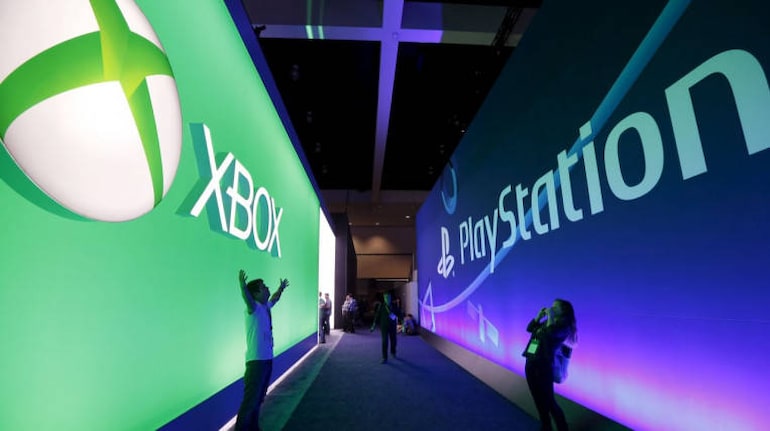



This week, both Sony and Microsoft announced the complete spec sheet for their next-generation consoles. Both the PlayStation 5 and Xbox Series X are expected to bring big performance gains over their predecessors. But how do they fare against each other? Well, let’s find out.
Xbox Series X vs PlayStation 5| Specs | Xbox Series X | PlayStation 5 |
| CPU | 8-core AMD Zen 2 at 3.8GHz | 8-core AMD Zen 2 at 3.5GHz |
| GPU | AMD RDNA 2, 12 TFLOPs, 52 Compute Units (1.8GHz) | AMD RDNA 2, 10.28 TFLOPs, 36 Compute Units (2.23GHz) |
| Memory | 16 GB GDDR6 | 16 GB GDDR6 |
| Storage | 1 TB Custom NVME SSD | 825 GB Custom NVMe SSD |
| Expandable Storage | 1 TB Expansion Card | NVMe SSD Slot |
| External Storage | USB 3.2 External HDD Support | USB HDD Support |
| 4K Support | Yes | Yes |
| 8K Support | Yes | Yes |
| Optical Drive | 4K Ultra HD Blu-ray | 4K Ultra HD Blu-ray |
| HDR Support | Yes | Yes |
| Ray Tracing Support | Yes | Yes |
| Ports | Three USB-A 3.0 Ports, HDMI Out, Optical Audio, Proprietary Memory Slot | TBD |
In terms of performance, the PS5 and Xbox Series X use more-or-less the same hardware, with the AMD Zen 2 CPU and RDNA GPU, which is a massive step up from the current generation of consoles. However, the PS5’s GPU is configured differently from the Xbox Series X. Sony is using a smaller GPU that is running at higher clock speed. This will make it easier to cool and cheaper to manufacture.
By offering developers less compute units at a variable clock rate, Sony is hoping it will be able to extract better performance out of the PS5. The Xbox Series X, on the other hand, will run at a fixed clock speed. However, this will require more work on the developer’s side to optimise games for the console.
For now, the Xbox CPU and GPU combination certainly looks more impressive. Not only does the CPU on the Xbox Series X have a higher clock speed, but it also has a higher confirmed speed of up to 12TFLOPs.
StorageOne of the main focuses on both consoles is storage. Both these gaming consoles will significantly improve load times through new and improved NVMe SSDs. However, Sony has taken a bit of a different approach with its proprietary SSD solution that delivers 825GB of storage and 5.5GB/s of performance. The Xbox Series X, on the other hand, has a 1TB NVMe SSD and 2.4GB/s performance, less than half the raw throughput on the PS5.
While we’ve already seen demos with significantly improved load times, the PS5 is going to take it to the next level and in theory, should have faster load times than the Xbox Series X.
In terms of expanding storage, Microsoft will use a proprietary expansion card format, while Sony will release a list of PCIe 4.0-based drives that will match the bandwidth of the PS 5’s custom SSD.
Backward CompatibilityThe one clear drawback on the PS5 is backward compatibility. Sony is only offering backward compatibility for PlayStation 4 games on the PS5, while Microsoft will allow you to play games from all previous Xbox consoles on the Xbox Series X.
Based on the specs, the PS5 could potentially be cheaper and smaller than the Xbox Series X. But it is still too early to tell and better specs on paper don't always translate to better real-world performance, especially when the differences are marginal.

Discover the latest Business News, Sensex, and Nifty updates. Obtain Personal Finance insights, tax queries, and expert opinions on Moneycontrol or download the Moneycontrol App to stay updated!
Find the best of Al News in one place, specially curated for you every weekend.
Stay on top of the latest tech trends and biggest startup news.